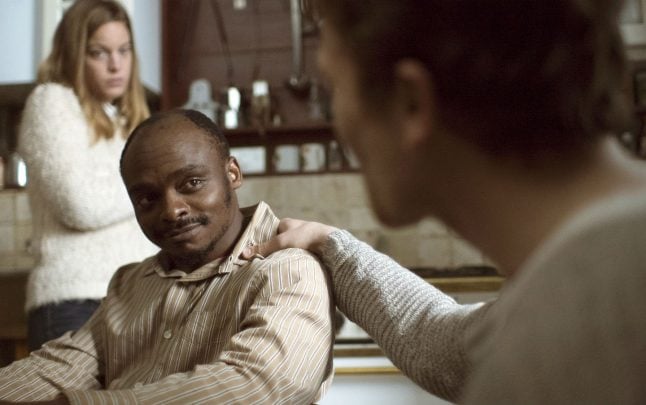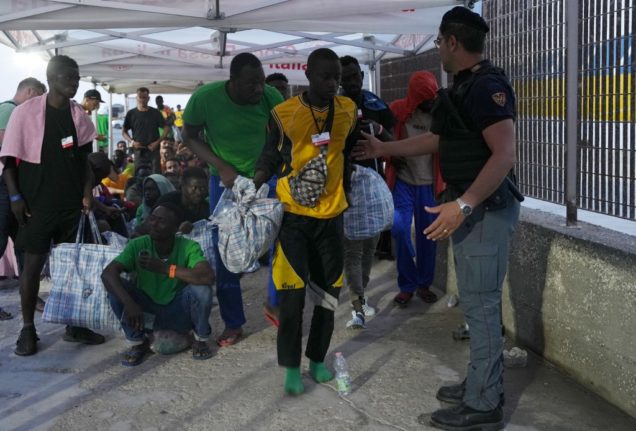The biggest grossing German movie last year was a fizzy feel-good summer comedy about the country's refugee influx, “Welcome to the Hartmanns”.
Just a year on, German screens are darkening with “Club Europa”, a sobering take on the challenges and dilemmas in the newcomers' integration that mirrors a growing national sense of ambivalence.
The new movie by 32-year-old Franziska Hoenisch, to be broadcast on public television ZDF on Thursday, tells the story of a group of young Berlin flatmates who decide to take in a refugee from Cameroon named Samuel.
The Berliners show the newcomer the capital's famous techno scene and demonstrate how to use a potato peeler while explaining to Samuel that he has arrived in “potato country”.
But the light tone of the movie soon grows ominous as Samuel's asylum request is rejected by the authorities.
The young adults must now decide if they would keep hosting him even though his residence status is now in limbo.
“We didn't want to just make a movie about people who succeed, which comforts the viewer and gives the impression that all is well,” Hoenisch told AFP.
'All talk, no action'
The filmmaker said she deliberately centred the movie around young adults in the hopes of shaking them out of their comfort bubble to take responsibilities for their action.
“The people of my generation talk a lot, we want to be politically correct and involved, but deep down, we don't do much,” said the young director.
“We don't channel our energy towards changing things for the better, but more to build our personal happiness,” she said.
“It's not enough to just assuage our bad conscience by helping a little.”
The director had already begun working with the charity group Refugees Welcome — which matches people willing to open up their homes to potential refugee flatmates — in the autumn of 2014.
But a year later, the story became Germany's biggest preoccupation as the country saw a record influx of asylum seekers, reaching 1.1 million over 2015 and 2016.
The arrival of tens of thousands of asylum seekers cheered by volunteers handing out food, water and teddy bears at German rail stations became the defining image then.
Chancellor Angela Merkel, who looks set to win a fourth term in September elections, was able to tap into a wellspring of empathy for the asylum seekers, particularly those fleeing war-ravaged Syria.
However, that enthusiasm has turned into doubts about Europe's biggest economy's ability to integrate so many people so quickly, and filmmaking is catching up to that reality.
Things have changed
Mareike Geiling, a co-founder of Refugees Welcome, said “Club Europa's” plot is not necessarily representative of how asylum seekers have been received by people who have volunteered their homes through their platform.
“95 percent of flat shares work very well,” she said.
But she admitted that a flood of goodwill towards the newcomers in 2015 has faded.
From offers in the hundreds a month during the peak of the crisis, the number of flatshare proposals has dropped to about a dozen a month.
“People were open to all sorts of people in the beginning. Now they are increasingly picky, sometimes even racist,” she said, noting that some are only willing to host women or Christians.
“Things have completely changed. We were talking about the 'welcome culture' in 2015. That no longer exists today,” warned Geiling.



 Please whitelist us to continue reading.
Please whitelist us to continue reading.